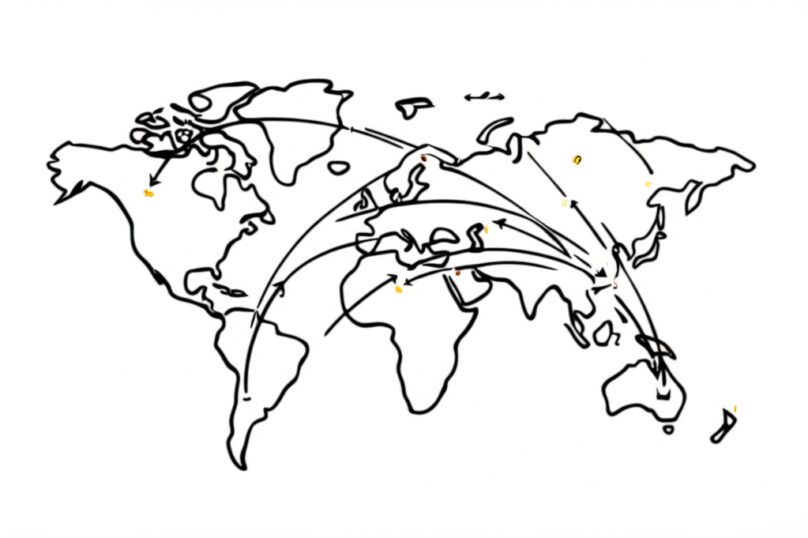Key trends in International Business & Global Expansion for government agencies

Key Trends in International Business & Global Expansion for Government Agencies
The world is becoming increasingly interconnected, and for government agencies, understanding and adapting to key trends in international business and global expansion is crucial for fostering economic growth, enhancing citizen services, and maintaining a competitive edge on the global stage. This post will delve into some of the most impactful trends shaping this landscape, providing valuable insights for government agencies looking to navigate the complexities of international engagement.
1. The Rise of Digital Technologies and E-commerce: The digital revolution has fundamentally reshaped international trade. E-commerce platforms have opened up unprecedented opportunities for businesses of all sizes to reach global markets. For government agencies, this means adapting regulatory frameworks, investing in digital infrastructure, and supporting businesses in leveraging these technologies for international expansion. In Tamil Nadu, for instance, initiatives to promote digital literacy among SMEs have shown promising results in driving e-commerce adoption and exports. Consider how your agency can facilitate digital trade through streamlined online processes, training programs, and collaborative partnerships with private sector players.
2. Growing Importance of Sustainability and ESG Factors: Consumers and investors are increasingly demanding sustainable and ethical practices from businesses. Government agencies play a crucial role in setting standards, implementing policies, and promoting sustainable business practices globally. This includes supporting green technologies, incentivizing environmentally friendly businesses, and integrating environmental, social, and governance (ESG) factors into international trade agreements. In Tamil Nadu, the state government’s push for renewable energy initiatives is attracting foreign investment and driving sustainable economic growth. Aligning your agency’s international strategies with these principles can boost your reputation and attract responsible investments.
3. The Power of Strategic Partnerships and Collaboration: Effective international business engagement requires strong collaboration between government agencies, businesses, and international organizations. Joint ventures, technology transfer agreements, and public-private partnerships (PPPs) can be instrumental in facilitating global expansion. The Tamil Nadu government’s partnership with several multinational corporations in the automotive sector serves as a successful example. Explore innovative ways to foster such collaborations through streamlined bureaucratic processes, accessible funding mechanisms, and efficient communication channels.
4. Navigating Geopolitical Uncertainty: The global landscape is characterized by increasing geopolitical complexity and uncertainty. Trade wars, sanctions, and political instability can significantly impact international business activities. Government agencies must develop robust risk assessment strategies, diversify their international partnerships, and adapt to changing geopolitical dynamics. This includes fostering strong diplomatic relationships, actively monitoring global events, and ensuring business continuity plans are in place for a wide range of scenarios.
5. The Skills Gap and Talent Development: Success in international business requires a skilled and adaptable workforce. Government agencies need to focus on developing programs to upskill the workforce, fostering talent development, and attracting and retaining skilled professionals. In Tamil Nadu, initiatives promoting vocational training and technical education are equipping individuals with the skills needed for international business roles. By investing in education and training, your agency can ensure that your workforce is prepared to handle the challenges and opportunities of the global economy.
Conclusion: Embracing these key trends is crucial for government agencies seeking to navigate the complexities of international business and global expansion. By proactively adapting to change, fostering collaboration, and supporting businesses in their global endeavors, government agencies can play a vital role in driving economic growth, enhancing citizen services, and building a more prosperous and interconnected world.
